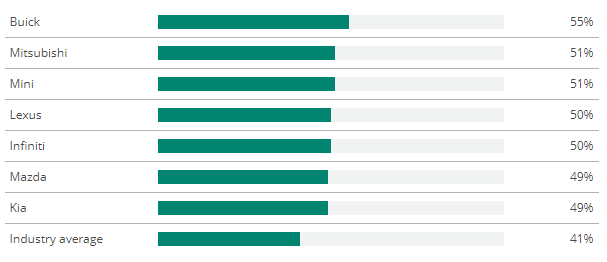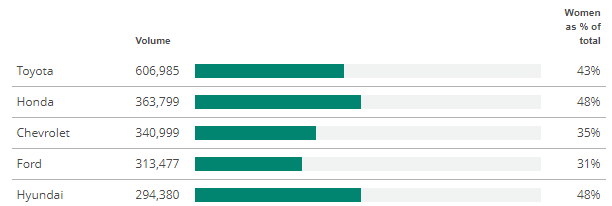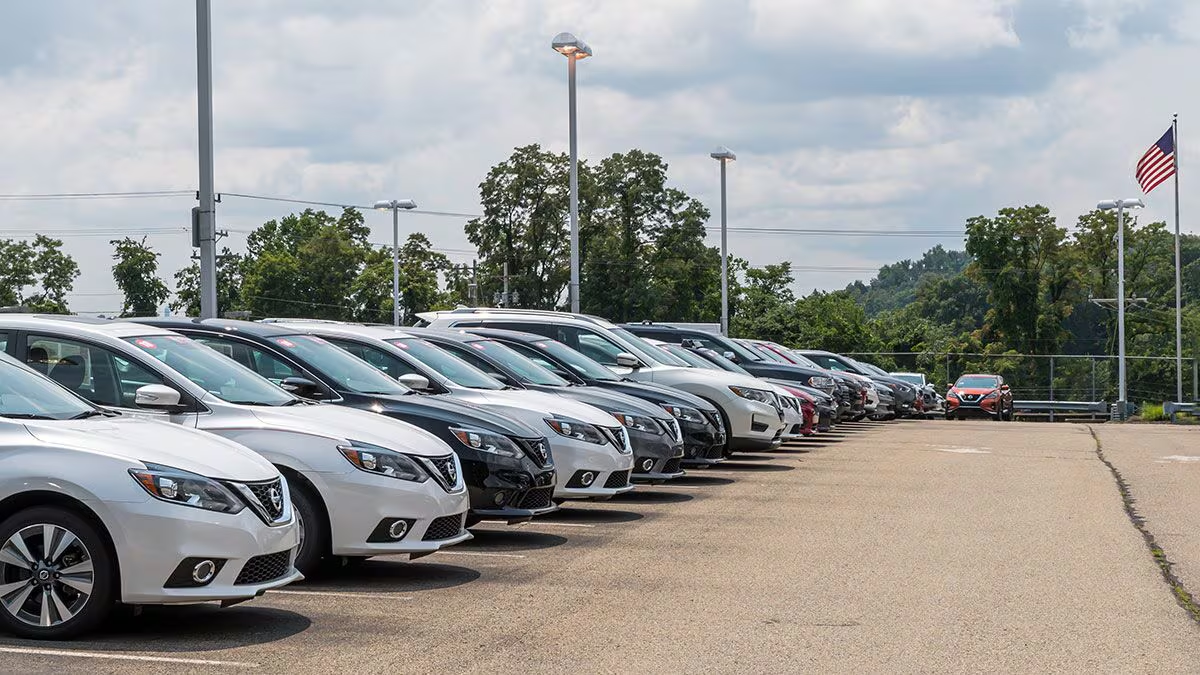What Auto Brands Are Most Popular With Female Buyers (PDF)
When it comes to American vehicle purchases, brands like Ram, GMC, Ford, Tesla, and Dodge have the lowest female share. Market research from S&P Global Mobility estimates that only 17% of new Ram personal vehicle registrations in 2022 have a female owner. The other four brands in question had less than 35% female participation.
On the other hand, Buick was a leader in this regard, with 55% of its buyers being women. Mitsubishi, Mini, Lexus, Infiniti, Mazda, and Kia also had excellent results, with woman representing approximately half of their registrations—all above the industry average of 41 percent.
The Toyota brand was particularly well-received among women. They purchased 43% of the brand’s vehicles, but they also registered on 606,985 occasions, the most of any other brand. Honda was second with 363,799.
Brands with the highest female buyer representation

Brands with the lowest female buyer representation

As a result of S&P’s study, female buyers are consistently more loyal to their brands than male buyers, sticking with their brands by an average of 4 percentage points. S&P analysts said better appealing to women will mean more than lumping all of those buyers together, considering that Dodge, Ram, and GMC have struggled with new-buyer loyalty.
A product portfolio, considering the male skew of truck brands as well as SUVs and performance cars, is also cited by S&P as a possible differentiator between brands for women.
Brands with the highest volume of registrations among women

| Automaker | Volume | Women as % of total |
| Toyota | 606,985 | 43% |
| Honda | 363,799 | 48% |
| Chevrolet | 340,999 | 35% |
| Ford | 313,477 | 31% |
| Hyundai | 294,380 | 48% |
Tesla is an outlier when it comes to the success of its Model Y crossover, which is particularly popular amongst women. This fits in with a wider trend uncovered by S&P – females are underrepresented when it comes to EV purchasing. In 2022, only 28 percent of new EVs were registered to women buyers. Tesla did have a slightly higher percentage than other EV startups at 33 percent, but Rivian had the lowest ratio of just 15 percent – in line with manufacturers of exotic sports cars.



